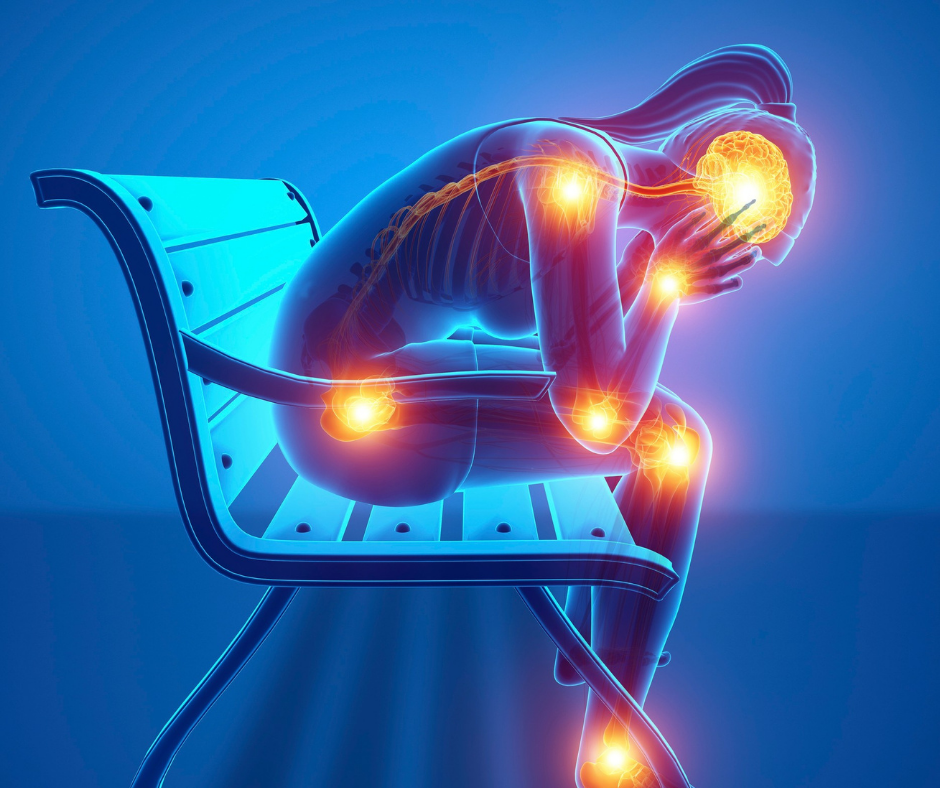
How Emotions Affect Pain
Did you know there is a strong link between your emotions and joint pain - or any pain for that matter?
The connection between emotions and pain has been well studied over the years. Of course if you are already in pain, it’s understandable that chronic pain can create negative emotions like worry, anxiety, fear and frustration.
What may be surprising to some people is that pain can be CAUSED by negative emotions. This study reviewed findings from many studies which examined the neurological pathways that connect emotions as a cause of pain.
That negative, stressful emotions can cause physical pain is no surprise to me and many of my clients. Over and over again, my clients feel that a particularly stressful event, or years of chronic stress, or a stressful childhood is behind their physical pain. Others are not really aware of the link, but once we start digging it becomes clear that negative emotions are at the root.
I’ve always found it interesting to hear that particular emotions are associated with certain illnesses. Louise Hay’s classic book “You Can Heal Your Life” links emotions and thoughts with particular illnesses.
Regarding joint pain specifically, Hay says this is associated with thoughts and emotions of:
-
Resentment
-
Criticism
-
unworthiness
-
Blame
-
Feeling victimized
How is it that emotions are connected with physiology? I’ve been studying this area for the last few years and here is my understanding of the physiological process:
-
Stressful events create stressful thoughts and then incoherence in the brain.
-
The brain begins misfiring, and the autonomic nervous system (ANS) moves into the sympathetic state of wanting to fight/flight/freeze.
-
If we can’t physically release (fight/flight/freeze) then the heart races, and all the body systems begin operating inefficiently.
-
As well, hormones of stress get released, creating negative emotions like fear, aggression, guilt, shame, suffering, unworthiness.
-
The emotional environment creates and electromagnetic field which signals genes in the cells.
-
Genes ‘express’ illness by creating proteins of illness
-
Proteins are responsible for the structure and function of our body, so then the body structure and function begins to change.
Stressful childhood events can be carried as repeating thoughts/limiting beliefs in to adulthood and can be unknowingly simmering stress in our body. It is said that about 90% of our thoughts are repeated and about 60% of those are negative.
A stressful event can be the tipping point that turns underlying emotional stress into full blown illness and pain.
What can you do if you already have pain in your body?
First of all, become aware of your thoughts, especially those that might be generating emotions of stress. Journal to write down your thoughts or work with a professional trained in this area.
Consciously create new thoughts, release old thoughts reprogram the brain. Some strategies are cognitive behavioural therapy (CBT), positive affirmations, and visualization.
Remove ‘stuck’ negative emotions with energy work like Emotional Freedom technique (EFT) tapping, acupuncture, Reiki, yoga, mediation or conscious breathing.
Don’t give up! Negative emotions may have been with you for a long time. While they may clear in an instant, they may also take a while. Persevere!
Maybe you’ve been doing ALL THE THINGS, like anti-inflammatory foods, supplements and even surgery, to help relieve your pain naturally and you’ve reached a plateau. Dealing with emotions could be the one thing needed to get you back to freedom again.
Get started with lowering pain and inflammation with my free Relief with Peace Audio Bundle



